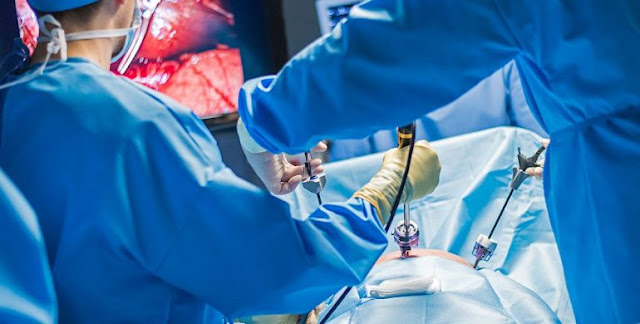What are the Most Common Types of Hernia?
A hernia is a weakness in the abdominal muscle wall which holds the
inner lining of the abdomen and internal organs in place. It usually
occurs when an organ pushes through that tear in the muscle or tissue
that retains it in the place. These are most common in the abdomen,
but it can also appear in any part of the body including the upper
thigh, belly button, and groin areas. Most hernias aren’t
life-threatening or fatal in any way but they don’t go away on
their own. Sometimes, they do require surgery to prevent any
potentially dangerous complications. At Medanta Medcity Hospital, one
can find the Best
Surgeon for Hernia Repair in Delhi
who offers to treat all types of hernia treatments which are
suitable to the patient's needs.
Common
types of hernia
- Inguinal Hernia
When
the intestines push through a weak spot or tear in the lower
abdominal wall often in the inguinal canal, which is found in the
groin area, the hernia is called Inguinal Hernia. In males, this
inguinal hernia holds the testicles and it passes from abdomen to the
scrotum. While in females, the inguinal canal contains a ligament
that helps hold the uterus in place. However, Inguinal hernia is more
common in males than females as man’s testicles descend through the
inguinal canal shortly after birth, and the canal is supposed to
close almost completely behind them. Sometimes, the canal doesn’t
close properly and leaves a weakened area making it prone to hernia.
- Hiatal hernia
It
occurs when a part of the stomach protrudes up through the diaphragm
into the chest cavity. A diaphragm is a sheet of muscle that helps in
breathing by contracting and drawing air into the lungs and separates
the organs in the abdomen from the chest. It is most commonly found
in people over the age of 50 years old. A congenital birth defect can
also lead to Hiatal hernia. Hiatal hernia also causes
gastroesophageal reflux which occurs when the stomach contents leak
backward into the esophagus and cause a burning sensation.
- Umbilical hernia
It
occurs in children and babies below six months old and happens when
the intestines bulge through the abdominal wall near the bellybutton.
An umbilical hernia is noticeable via a bulge in or near the child’s
bellybutton. It is the only kind that disappears on its own as the
abdominal wall muscles start to get stronger before the child reaches
the age of 1 year. If the umbilical hernia doesn't go away on it own
then surgery might be needed to correct it.
- Incisional hernia
Incisional
hernias can result after having an abdominal surgery as the
intestines might push through the incision scar or the surrounding
area of the weakened tissue.
At
Medanta Medicity Hospital, a team of the
Best Hernia Doctor in Gurgaon perform
the hernia repair surgery with the latest technology for the utmost
precision at a great success rate.
Related Post: https://obesitysurgeonindia.blogspot.com/2019/02/best-hernia-doctor-in-delhi-gurgaon.html


Comments
Post a Comment